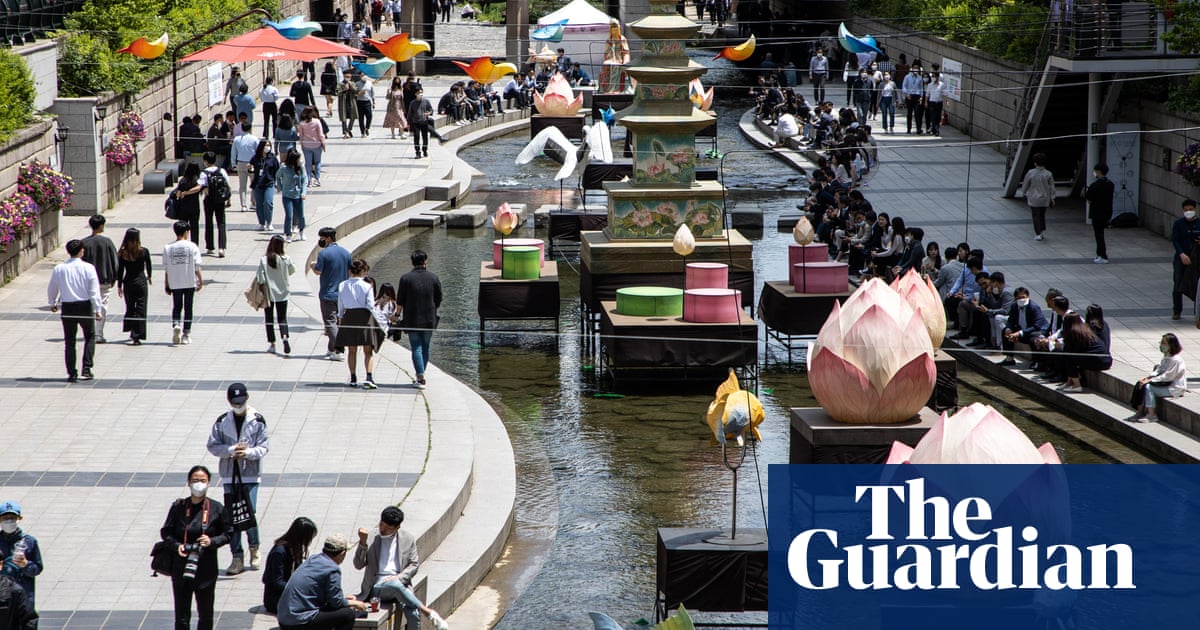The Prince of All Saiyans
Formerly Jisoo Stan & @Twitter
South Korea’s government has been forced to rethink a planned rise in working hours after a backlash from younger people who said the move would destroy their work-life balance and put their health at risk.
The government had intended to raise the maximum weekly working time to 69 hours after business groups complained that the current cap of 52 hours was making it difficult to meet deadlines. But protests from the country’s millennials and generation z prompted the president, Yoon Suk-yeol, to order government agencies to reconsider the measure and “communicate better with the public, especially with generation z and millennials”, his press secretary, Kim Eun-hye, said.
(ad)

“The core of [Yoon’s] labour market policy is to protect the rights and interests of underprivileged workers, such as the MZ generation, workers not in a union and those working in small and medium-sized businesses,” Kim said, according to the Korea Herald.
Yoon, a conservative who is seen as pro-business, had supported the raise to give employers greater flexibility. Union leaders, however, had said it would force people to work longer hours, in a country already known for its punishing workplace culture.
The plan has also been criticised as out of step with other major economies, including Britain, where dozens of companies last year trialled a four-day week that campaigners said resulted in similar or better productivity and increased staff wellbeing.
South Koreans worked an average of 1,915 hours in 2021 – that’s 199 hours more than the Organization for Economic Co-operation and Development average, according to the most recent OECD employment outlook, and 566 hours more than workers in Germany.
Yoon, who was elected president in 2022 with support from disaffected young men, is hoping his People Power party will attract the youth vote in elections for the national assembly next year.
The original plan announced earlier this month would have overturned legislation introduced in 2018 by the liberal Democratic party that limits the working week to 52 hours: 40 of regular work plus 12 of overtime. The party has said it will use its majority in the national assembly to block the bill.
Unions and opposition politicians have argued that forcing employees in Asia’s fourth-biggest economy to work longer hours will do nothing to address the country’s record low birthrate.
“It will make it legal to work from 9am to midnight for five days in a row. There is no regard for workers’ health or rest,” the Korean Confederation of Trade Unions said in a statement.
The labour minister, Lee Jung-sik, had argued that raising the weekly cap to 69 hours would enable working women to accrue more overtime hours in exchange for time off later that could be used for family and caregiving commitments.
“We’ll introduce bold measures to help cut working hours during pregnancy or while raising children,” Lee said last week, when asked if the raise would help alleviate the fertility crisis.
Women’s groups, however, said that the measure would hurt working mothers and other women. “While men will work long hours and be exempt from care responsibilities and rights, women will have to do all the care work,” the Korean Women’s Associations United said in a statement.
… as 2023 gathers pace, and you’re joining us from Canada, we have a small favour to ask. A new year means new opportunities, and we're hoping this year gives rise to some much-needed stability and progress. Whatever happens, the Guardian will be there, providing clarity and fearless, independent reporting from around the world, 24/7.
Times are tough, and we know not everyone is in a position to pay for news. But as we’re reader-funded, we rely on the ongoing generosity of those who can afford it. This vital support means millions can continue to read reliable reporting on the events shaping our world. Will you invest in the Guardian this year?
Unlike many others, we have no billionaire owner, meaning we can fearlessly chase the truth and report it with integrity. 2023 will be no different; we will work with trademark determination and passion to bring you journalism that’s always free from commercial or political interference. No one edits our editor or diverts our attention from what’s most important.
With your support, we’ll continue to keep Guardian journalism open and free for everyone to read. When access to information is made equal, greater numbers of people can understand global events and their impact on people and communities. Together, we can demand better from the powerful and fight for democracy.
Whether you give a little or a lot, your funding is vital in powering our reporting for years to come. If you can, please support us on a monthly basis from just CA$2. It takes less than a minute to set up, and you can rest assured that you’re making a big impact every single month in support of open, independent journalism. Thank you.

South Korea U-turns on 69-hour working week after youth backlash
Protesters claim proposed increase in hours would risk health and fail to boost low birth rate
tldr:
they want time to take care of their kids and 69 hours a week is too much